This was my first full year in New York, my first with a full-time job, and the first since college in which I signed a lease. In the past few years I lived in rural Colorado, freezing, then New Mexico, Texas, and California; I exited a very long relationship; I misplaced entire boxes of possessions and filed Borgesian freelance tax returns. Regret is always there for the taking when you’re growing up, whenever that may be, but it’s not so bad when you can drive to the next destination before it catches up. So while 2022 has been relatively stable, staying in one place has given me plenty of time to reckon with myself. To distract, I placed some of the aimlessness I used to embody in my reading patterns. Here are some of the great books I came across in the process.
I spent New Year’s with my brother in the Bay Area, where I got Covid. While infected, I read The Portrait of a Lady in preparation for a Henry James vs. Edith Wharton party/debate my friends were having in the city a few weeks later. (I was on team James.) What a great book to read while 26 and clumsy, wanting both independence and a good reason to abandon it, and while being put up in someone else’s home like the overseas Isabel Archer so often is. Beyond these obvious resonances, I loved how James quilts together varied forms of love across generations, dispositions, and fates. Also, I’m sorry if this James/Wharton party sounds annoying, but I’ll counter that by saying it was extremely fun. One challenge was to write parodies of each author. My team’s Wharton passage described an event called “the Horse Week Ball.”


 A friend of mine gave me three slim books that I enjoyed this year—a stunning batting average. The Berlin-set Wallcreeper by Nell Zink gives us one of the best slothful women protagonists of all time, named Tiffany of all things, and it made me laugh a lot. It is also a great book about birds. Pig Earth by John Berger, the first of his Their Labours trilogy, is a strange and gorgeous example of ethnographic fiction, building an expansive point of view from a constellation of stories (and some poems, which I didn’t like so much) about 20th century French peasants. The third book this friend offered was Black Wings Has My Angel, a title I have since forced multiple people to type into their notes apps. It’s a 1953 noir by Elliott Chaze that follows the escaped convict Tim Sunblade as he traipses from Louisiana to Colorado to rob an armored truck with a prostitute named Virginia. It’s a violent and frightening book, but it cuts its dark path through pedestrian materials, revealing the routes everyday people can follow that lead to destruction. Along the way it coolly glances at the alternate lives the protagonists tragically cannot reach. I’m often trying to better explain what attracts me to this kind of entrapping “nightmare logic,” a useful term that sounds like it came off the r/TwinPeaks subreddit. Much of it has to do with questions about the power individual wills can truly have within larger structures—of course, we must thank the Greeks. In Black Wings, this narrative gives the criminal justice system, which Sunblade escapes and then ends up in, a surreal shade of prophetic evil that feels truer than the banality it tries to project. The book thankfully doesn’t deny him the privilege of being monstrous himself, which allows him a kind of crooked artistry.
A friend of mine gave me three slim books that I enjoyed this year—a stunning batting average. The Berlin-set Wallcreeper by Nell Zink gives us one of the best slothful women protagonists of all time, named Tiffany of all things, and it made me laugh a lot. It is also a great book about birds. Pig Earth by John Berger, the first of his Their Labours trilogy, is a strange and gorgeous example of ethnographic fiction, building an expansive point of view from a constellation of stories (and some poems, which I didn’t like so much) about 20th century French peasants. The third book this friend offered was Black Wings Has My Angel, a title I have since forced multiple people to type into their notes apps. It’s a 1953 noir by Elliott Chaze that follows the escaped convict Tim Sunblade as he traipses from Louisiana to Colorado to rob an armored truck with a prostitute named Virginia. It’s a violent and frightening book, but it cuts its dark path through pedestrian materials, revealing the routes everyday people can follow that lead to destruction. Along the way it coolly glances at the alternate lives the protagonists tragically cannot reach. I’m often trying to better explain what attracts me to this kind of entrapping “nightmare logic,” a useful term that sounds like it came off the r/TwinPeaks subreddit. Much of it has to do with questions about the power individual wills can truly have within larger structures—of course, we must thank the Greeks. In Black Wings, this narrative gives the criminal justice system, which Sunblade escapes and then ends up in, a surreal shade of prophetic evil that feels truer than the banality it tries to project. The book thankfully doesn’t deny him the privilege of being monstrous himself, which allows him a kind of crooked artistry.



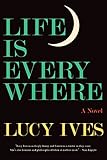

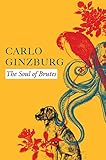
 I get to read a lot of books for the Harper’s Readings section, where we excerpt upcoming titles. So many great ones literally came across my desk: Margo Jefferson’s Constructing a Nervous System, a virtuosic example of a cultural memoir, and Pig Years by Ellyn Gaydos, which builds a stunning portrait of motherhood and its anxieties through farm laboring. After reading Jesse Ball’s Autoportrait, his meandering but lucid stream of declarative biographical anecdotes, I found myself mimicking the rhythms of his prose in stray places—texts, tweets, post-its. Lucy Ives’s Life Is Everywhere genuinely changed how I think about reading and writing. (I then devoured her story collection, Cosmogony.) I also read Carlo Ginzburg’s latest collection of essays, The Souls of Brutes. I was a big fan of The Cheese and the Worms in college, and I would recommend the new one to all Menocchio-heads.
I get to read a lot of books for the Harper’s Readings section, where we excerpt upcoming titles. So many great ones literally came across my desk: Margo Jefferson’s Constructing a Nervous System, a virtuosic example of a cultural memoir, and Pig Years by Ellyn Gaydos, which builds a stunning portrait of motherhood and its anxieties through farm laboring. After reading Jesse Ball’s Autoportrait, his meandering but lucid stream of declarative biographical anecdotes, I found myself mimicking the rhythms of his prose in stray places—texts, tweets, post-its. Lucy Ives’s Life Is Everywhere genuinely changed how I think about reading and writing. (I then devoured her story collection, Cosmogony.) I also read Carlo Ginzburg’s latest collection of essays, The Souls of Brutes. I was a big fan of The Cheese and the Worms in college, and I would recommend the new one to all Menocchio-heads.
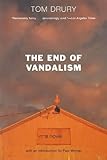
 I heard somewhere about The End of Vandalism, a novel by Tom Drury. I read it after my brilliant friend and colleague Will nodded when I asked him if it was good. It is good, so good, and so benevolently funny. It follows the lives of three main thirtysomethings in Grouse County, Iowa in the 1980s, along with scores of other characters spread across a web of rural farm towns. People divorce, marry, try to have children, run away, and run for office, all while outbursts, rivalries, addictions, schemes, and failures, along with countless tender moments, flare up and fizzle. Each happening becomes part of an awkward murmuration. Here is an approach to fiction that is truly communal, which is not only to say that it takes place in small communities. While Drury’s characters are sharply defined, their personalities, desires, and limitations are coauthored by the imperfect people who share their small world—as with Leibnizian monads, self-expression is in fact an act of reflection. When people change, leave town, or die, everyone is affected, if unevenly. We all experience these kinds of ripples, of course. But those who grew up in small places, which themselves also die, understand them at a different register. Anyway, I kept wanting to recommend this book to someone I’m no longer in touch with. I restrained myself because I don’t think it would have done much good. Instead I murmur the Brothers Karamazov epigraph and broadcast it in that person’s general direction, and mostly back at myself: “If you do not attain happiness, always remember that you are on a good path, and try not to leave it.”
I heard somewhere about The End of Vandalism, a novel by Tom Drury. I read it after my brilliant friend and colleague Will nodded when I asked him if it was good. It is good, so good, and so benevolently funny. It follows the lives of three main thirtysomethings in Grouse County, Iowa in the 1980s, along with scores of other characters spread across a web of rural farm towns. People divorce, marry, try to have children, run away, and run for office, all while outbursts, rivalries, addictions, schemes, and failures, along with countless tender moments, flare up and fizzle. Each happening becomes part of an awkward murmuration. Here is an approach to fiction that is truly communal, which is not only to say that it takes place in small communities. While Drury’s characters are sharply defined, their personalities, desires, and limitations are coauthored by the imperfect people who share their small world—as with Leibnizian monads, self-expression is in fact an act of reflection. When people change, leave town, or die, everyone is affected, if unevenly. We all experience these kinds of ripples, of course. But those who grew up in small places, which themselves also die, understand them at a different register. Anyway, I kept wanting to recommend this book to someone I’m no longer in touch with. I restrained myself because I don’t think it would have done much good. Instead I murmur the Brothers Karamazov epigraph and broadcast it in that person’s general direction, and mostly back at myself: “If you do not attain happiness, always remember that you are on a good path, and try not to leave it.”
 I technically read some of The Holy Quran because my landlord Mohammed gave me a copy. It’s in English, though, which is probably why I’m not finding it all that gripping yet. In any case, I’m keeping it in my nightstand drawer as if it were a bible in a Best Western. Did you know that practice is due to the work of a single Evangelical organization called Gideon International?
I technically read some of The Holy Quran because my landlord Mohammed gave me a copy. It’s in English, though, which is probably why I’m not finding it all that gripping yet. In any case, I’m keeping it in my nightstand drawer as if it were a bible in a Best Western. Did you know that practice is due to the work of a single Evangelical organization called Gideon International?



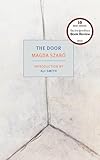

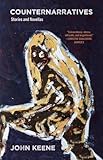
 Some favorite authors I revisited: I read Percival Everett’s Dr. No, a James Bond-satirizing caper with a professor protagonist who studies nothing, mathematically speaking. I also finished Everett’s Telephone, about another errant professor (geology), which I liked better for its broken heart and its partial New Mexican setting; I started that one in 2021 and then forgot it on an airplane with about 80 pages left, which is funny considering Graywolf published three versions of the novel, each with a different ending. I picked up Magda Szabó’s Abigail because of how much I liked The Door by her, and while this one unravels in a squarer way, it filters war through the passions and depressions of schoolgirls magnificently. I didn’t read much poetry this year beyond my usuals (Ashbery, Stevens, Bishop). But I did read and love Punks by John Keene, whose story collection Counternarratives is a masterpiece that I frequently return to. I’ve been creeping slowly through the work of Guy Davenport over the past five years, and I keep his essay collection The Geography of the Imagination permanently by my bed. I’ll just say that reading Davenport is like finding a time machine in a warm hovel.
Some favorite authors I revisited: I read Percival Everett’s Dr. No, a James Bond-satirizing caper with a professor protagonist who studies nothing, mathematically speaking. I also finished Everett’s Telephone, about another errant professor (geology), which I liked better for its broken heart and its partial New Mexican setting; I started that one in 2021 and then forgot it on an airplane with about 80 pages left, which is funny considering Graywolf published three versions of the novel, each with a different ending. I picked up Magda Szabó’s Abigail because of how much I liked The Door by her, and while this one unravels in a squarer way, it filters war through the passions and depressions of schoolgirls magnificently. I didn’t read much poetry this year beyond my usuals (Ashbery, Stevens, Bishop). But I did read and love Punks by John Keene, whose story collection Counternarratives is a masterpiece that I frequently return to. I’ve been creeping slowly through the work of Guy Davenport over the past five years, and I keep his essay collection The Geography of the Imagination permanently by my bed. I’ll just say that reading Davenport is like finding a time machine in a warm hovel.
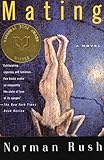 Norman Rush’s fantastic Mating took up most of my October and inspired me to finally create an account on the Merriam-Webster app so that I could save words. This book had a resurgence among my friends this year, mostly women, as we approach the age of the unnamed narrator; along with falling in love with that narrator’s brain, I gleaned many useful adages from the book, such as that while God is in control of every event that happens, “unfortunately the devil is in control of the timing.”
Norman Rush’s fantastic Mating took up most of my October and inspired me to finally create an account on the Merriam-Webster app so that I could save words. This book had a resurgence among my friends this year, mostly women, as we approach the age of the unnamed narrator; along with falling in love with that narrator’s brain, I gleaned many useful adages from the book, such as that while God is in control of every event that happens, “unfortunately the devil is in control of the timing.”
 The one book I stopped reading out of sharp dislike rather than lethargy or forgetfulness was Rabbit, Run. Sorry guys!
The one book I stopped reading out of sharp dislike rather than lethargy or forgetfulness was Rabbit, Run. Sorry guys!
 And now, as I write this at 2AM, I am almost done with Cormac McCarthy’s The Passenger. I’m taking perverse pleasure in enjoying it way more than I thought I would (and in reading the wonderful reviews that have been published—watch the Harper’s-space for a truly genius one we have in the January issue). A plane crash, the bomb, quantuum particles, oldtimey hallucinations, salvage diving, wandering around a seemingly empty offshore oil rig and sensing that someone dangerous is onboard… what more could you want! A lot more, probably, but we can still be grateful.
And now, as I write this at 2AM, I am almost done with Cormac McCarthy’s The Passenger. I’m taking perverse pleasure in enjoying it way more than I thought I would (and in reading the wonderful reviews that have been published—watch the Harper’s-space for a truly genius one we have in the January issue). A plane crash, the bomb, quantuum particles, oldtimey hallucinations, salvage diving, wandering around a seemingly empty offshore oil rig and sensing that someone dangerous is onboard… what more could you want! A lot more, probably, but we can still be grateful.
The post A Year in Reading: Elena Saavedra Buckley appeared first on The Millions.













